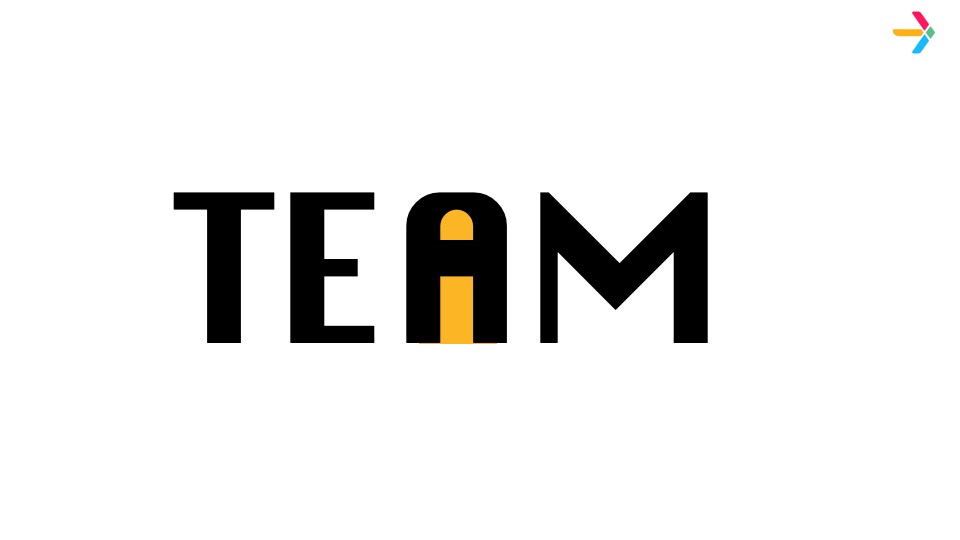In the first of two articles exploring the concept of a ‘team,’ I want to address a common but misguided notion often repeated in discussions about teamwork: the trite and glaringly false assertion that, “There is no ‘I’ in team.”
I realise that you, dear reader, will never have uttered this apocryphal statement, so I’m sure you’ll join me in suggesting that anyone currently using it, stop immediately. It’s simply wrong. Worse still, it has the potential to obscure powerful tools for creating high-performing teams.
Multiple selves
A team is, in fact, a collection of ‘I’s. There are as many “selves” at play in a team as there are members of that team. In fact, depending on your ‘model’ of self, there may be many more selves in one team than the number of people in the team [but that’s for another post]. Every individual team member is separate from the team. They do not disappear or suspend their ‘self’ when they are working with the team. To think they do, or to ask them to, denies reality and fails to tap into the power of each individual. What a waste!
A team culture that is clear, strong, and highly effective is one that allows, indeed encourages, people to align their “I” with the identity of the organisation. Not one which imposes its identity onto a person at the expense of their own identity. To ignore this is to invite high turnover rates and low performance.
Don’t get me wrong
It’s important not to misinterpret my observation with one that allows egos to run wild and free throughout your team. While we can acknowledge we all have drivers that make us rightly the centre of our universes at times, in a business context, one person’s “self” is not more important or worthy than another. Egotists want the world to revolve around them. That’s not great for the team; it’s not great ultimately for their performance or that of the business.
Equally, I urge you not to misinterpret what I’ve said, as if it relates to self-confidence: it’s vital, but self-confidence is often misinterpreted as egotism, by those lacking self-confidence! If you can maximise the potential of each and every team member by allowing their “self” to flourish and be as present as possible in a work context, then you are likely to get fantastic performance from each and everyone.
In understanding the importance of the individual within the team dynamic, it’s essential to recognise the diversity that each person brings. These differences in personality, background, cognition and experience, enrich the team’s collective capabilities. Embracing these diversities fosters innovation, creativity, and resilience within the team. To stifle the uniqueness of each member of your team, in order for them to fit an imposed set of values or purpose, gets the cart and horse in the wrong order.
Moreover, acknowledging and valuing the individual within the team framework enhances morale and fosters a sense of belonging. When team members feel seen and appreciated for their unique contributions, they are more likely to be engaged and committed to the impacts the team seek to deliver. This sense of belonging can significantly impact retention rates and overall team satisfaction.
Leadership balances one and many
Effective leadership plays a crucial role in harnessing the power of the individual within the team. Leaders who understand the strengths and motivations of each team member can delegate tasks more effectively, foster collaboration, and create an environment where individuals feel empowered to contribute their best work.
However, it’s essential to strike a balance between individual autonomy and collective responsibility within the team. While it’s crucial to empower individuals to make decisions and take ownership of their work, it’s equally important to ensure that everyone is aligned with the team’s overall objectives and working towards a common goal. The challenge for leaders is to be aware of this dichotomy and to find ways to make it work for all.
In conclusion, the notion that there is no ‘I’ in team is not only false but also detrimental to the success of any organisation. Recognising and valuing the individual within the team dynamic is essential for creating high-performing teams. By embracing diversity, promoting open communication, and empowering individuals, leaders can harness the full collective potential of their team and drive success in today’s competitive business landscape.
Whilst there may not be an ‘I’ in team there is in another relevant term … Win.
Just sayin’ …
We enable your organisation to achieve individual and collective transformation goals quickly and confidently, whether you require support for senior leaders, executive teams, or large cohorts of mission critical managers.
When you want to know more just click here to contact us and we’ll get straight back to you.






You actually make it appear so easy together with your presentation but I find this matter
to be actually one thing which I think I would never understand.
It sort of feels too complicated and very wide for me. I’m looking ahead on your subsequent submit, I will attempt to
get the hang of it! Escape room
Very interesting subject, regards for putting up..